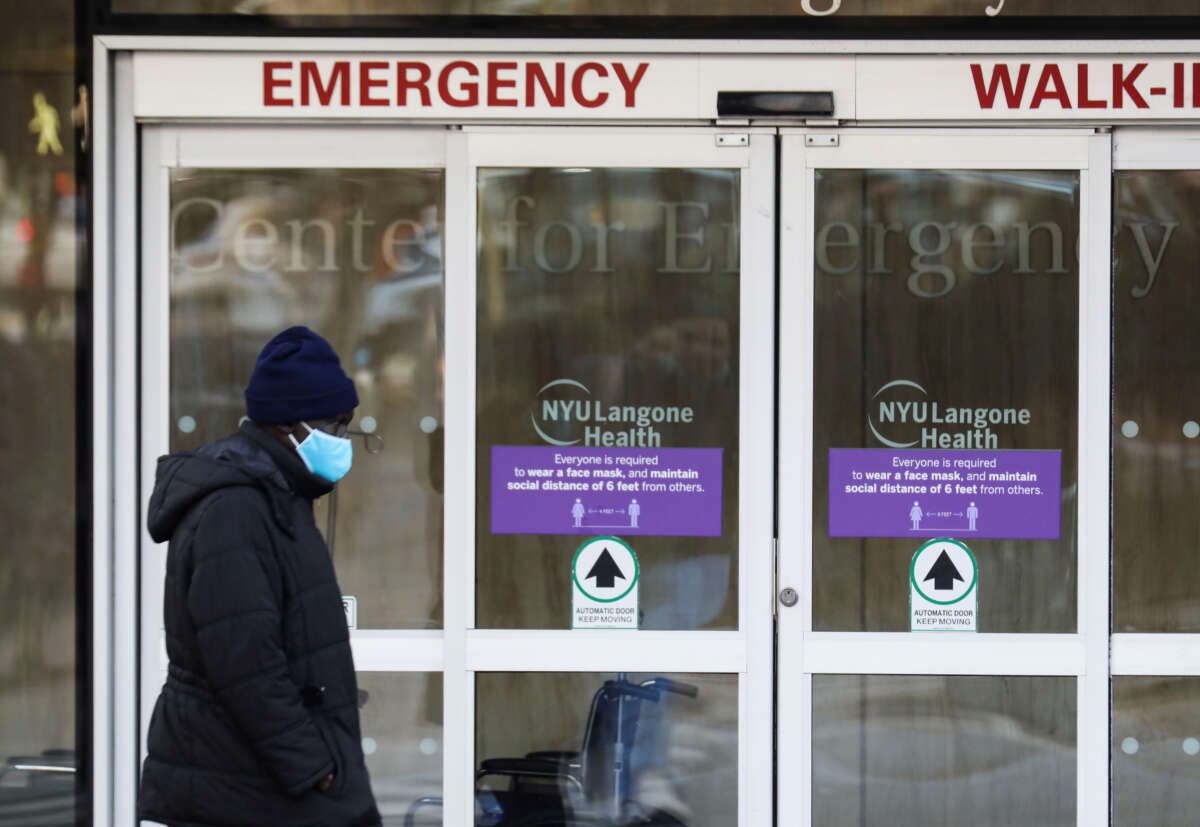New polling finds that the proportion of Americans who have delayed medical treatment due to costs has hit a record high as the pandemic rages on and it becomes harder for the working class to afford regular and emergency costs.
According to Gallup, 38 percent of Americans had either put off seeking medical treatment themselves or a member of their families did so in 2022. This is a 12 percent rise from the proportion of Americans who experienced this in 2021 and 2020.
This is an all-time high since Gallup began recording this data in 2001, and a 5 percent increase over the previously recorded high of 33 percent, in 2019 — even though, in the roughly two decades prior, the proportion had remained relatively steady at around 30 percent.
Younger people, women, and those with lower incomes were most likely to put off care; while 35 percent of people aged between 18 and 49 put off medical care, only 13 percent of people over 65 years old did the same, for instance. Meanwhile, those with an annual household income under $40,000 were almost two times more likely to put off medical care for a serious condition than those with household incomes above $100,000.
The survey also found that the proportion of Americans who put off treatment for a “very” or “somewhat” serious condition rose sharply last year, with over 1 in 4 Americans — 27 percent — saying as such. By contrast, 11 percent said that they had put off treatment for a “not very” or “not at all” serious condition, which roughly lines up with previous years’ data.
Gallup wrote that the sharp rise can be attributed to high inflation rates, which have created financial hardship for over half of households, other Gallup surveys have found.
Indeed, households are being hit extremely hard financially from many angles. Health care costs are becoming increasingly unaffordable for both the uninsured and those with insurance, and pharmaceutical companies continue to raise costs of prescription drugs at a rate that far outpaces inflation.
Health care unaffordability is a uniquely American problem. The U.S. spends more than any other wealthy country on health care each year as a result of being the only wealthy country without universal health care and basic health-related provisions like guaranteed paid sick and parental leave. Research has found that the pharmaceutical industry, which is behind one of the U.S.’s most powerful lobbies in D.C., makes more money off of U.S. sales than all other countries combined for many key drugs.
The high costs of health care, including the high costs of COVID and long COVID care, could be worsening the pandemic, as people put off getting treated for the illness due to costs.
The amount of money available to the average American is also a factor. In contrast to 2022, in 2020 and 2021, a relatively low number of people put off seeking medical care compared to previous years, likely due to the fact that provisions in the stimulus packages passed by Congress drove down economic hardship, plunging poverty rates down to record lows.
But politicians have now allowed provisions like the expanded child tax credit and stimulus payments to expire or be set aside, even though inflation is soaring; even the initial $1,200 stimulus checks authorized in December 2020 are worth about $150 less now than they were then, thanks to inflation.
In the absence of government aid, the working class is also being hit with accelerated trends of wealth inequality that are sapping wealth away from regular people to the top 1 percent, as spurred by neoliberal policies — trends that started before the pandemic but which have accelerated in recent years.
In 2021 and 2022, for instance, workers got a wage cut in real wages due to inflation, with workers having their pay cut by roughly 2 percent each year. With stagnant wages for workers combined with increased costs for things like college education and housing over the past decades, the working class has been doubly hit and the middle class, which is already shrinking, is in crisis; last year, data showed that, from March to October, the average wealth of the middle 40 percent of Americans dropped by 7 percent, the single largest drop since the Great Recession.
The economic prospects for the working class are slated to get worse, even as the public’s confidence in the state of the economy has hit its lowest point since the Great Recession. Economists and banks are predicting that the U.S. will enter a recession sometime this year, which will economically ravage working class Americans, many of whom are still recovering from the Great Recession.
Our most important fundraising appeal of the year
December is the most critical time of year for Truthout, because our nonprofit news is funded almost entirely by individual donations from readers like you. So before you navigate away, we ask that you take just a second to support Truthout with a tax-deductible donation.
This year is a little different. We are up against a far-reaching, wide-scale attack on press freedom coming from the Trump administration. 2025 was a year of frightening censorship, news industry corporate consolidation, and worsening financial conditions for progressive nonprofits across the board.
We can only resist Trump’s agenda by cultivating a strong base of support. The right-wing mediasphere is funded comfortably by billionaire owners and venture capitalist philanthropists. At Truthout, we have you.
We’ve set an ambitious target for our year-end campaign — a goal of $250,000 to keep up our fight against authoritarianism in 2026. Please take a meaningful action in this fight: make a one-time or monthly donation to Truthout before December 31. If you have the means, please dig deep.
